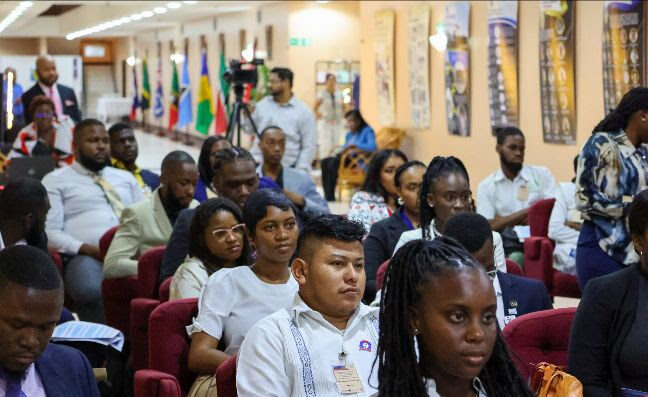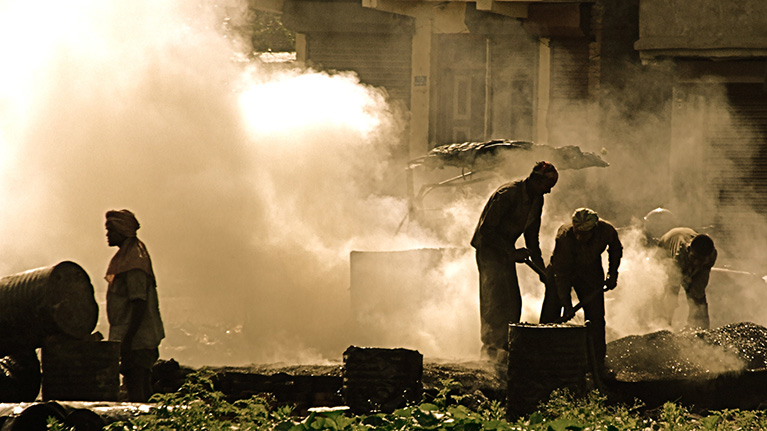PLACENCIA, Belize, Jun 29 2015 – The Board of Governors of the Caribbean Community Climate Change Centre concluded its annual meeting (June 25 -28) in Placencia, Belize yesterday. The Board agreed that the Centre will deepen engagement with the private sector to ensure broad utilisation of the seminal Caribbean Climate Online Risk and Adaptation Tool (CCORAL), pursue closer collaboration with the Caribbean Public Health Agency (CARPHA, which includes the former CEHI ), expand its youth focused public education work and welcome at least one new beneficiary country.
Public-Private Partnerships (PPP) are essential to advance the Centre’s multipronged approach to building climate resilience in the region. The Centre successfully used this approach to implement projects, such as the installation of reverse osmosis desalination facilities in Bequia, Petit Martinique and Cariacou, to improve access to potable water. Leveraging this approach to improve the uptake of CCORAL will be a key feature of the Centre’s work in the coming year. CCORAL, which was launched by the Centre in July 2013, is an online support tool developed to strengthen climate resilient decision-making processes across various sectors in the Caribbean by embedding a risk ethic. It has been endorsed by regional and international partners, including the Intergovernmental Panel on Climate Change (IPCC). The Centre has been working with the Caribbean Development Bank, its longstanding partner and a permanent member of the 11 member Board of Governors, and other development partners to mobilise private sector support for the tool. The Board also notes that the Caribbean Catastrophe Risk Insurance Facility (CCRIF) is a natural partner for the success of the tool at the regional level.
Following a special presentation to the Board of Governors in 2014 by Dr C.J. Hospedales, CARPHA’s Executive Director, the Centre is moving to deepen collaboration with the region’s premier health agency. The two entities are expected to collaborate to develop joint proposals aimed at reducing the region’s vulnerability and building resilience to the likely effects of climate change across a myriad of areas of mutual interest.
The success of the Centre’s new engagements will also offer an opportunity to advance its public education work. The Centre successfully piloted a network of school-based environmental clubs in Belmopan, Belize this year. This initiative includes 60 to 90 minute weekly meetings, experiential learning, highly interactive group exercises and discussions. This comprehensive youth focused outreach initiative, which also included the first Belize – Mexico Student Exchange on Climate Change, will be a key element of the Centre’s public engagement moving forward. The network of clubs will be rolled out across Belize and in three other CARICOM countries over the next 12 months.
To meet the emerging challenges and demonstrate its commitment towards a low carbon development pathway, the Board also reinforced its support for the construction of facilities to carry out the Centre’s operations. The Centre is currently housed in rented facilities provided by the Government of Belize. The Government of Belize has allocated 10 acres of land to the Centre, on which a custom-designed, ‘green’ facility will be constructed. The Centre is in the process of seeking financing to undertake this initiative. This development comes as the Centre prepares to celebrate its 10th Anniversary. The Board greatly appreciates the goodwill of the Centre’s host government in areas including and beyond the provision of property for the future facility and also welcomes similar offers from the University of Belize.
As the Centre expands and matures it is looking to welcome a new member. The Centre expects Martinique to become an Associate Member in the medium term, which would bring the total beneficiary countries to 15. The Board of Governors is aware that all countries in the region, whether English-, French- or Dutch-speaking are highly vulnerable to the risks posed by global climate change, as they are exposed to the same threats such as rising air and sea surface temperatures, changing rainfall patterns sea-level rise and changes in the behaviour of extreme weather and climate-related extreme events. It is against this background that the Board welcomed the application of Martinique for Associate Membership.
The Centre has expanded rapidly since it commenced operations in 2005, having developed the capacity to successfully execute a suite of regional climate change related programmes worth between US$40 and US$50 million over the last five years. The Centre continued the execution of eight medium to large projects/programmes over the last twelve months. The Centre’s most recent programme is a €12.8 million initiative to address ecosystems-based adaptation under an agreement with the German Development Bank (KfW). The KfW supported engagement seeks to protect the region’s extensive coastal resources through a combination of ecosystems-based adaptation and environmental engineering approaches that will also embed livelihood considerations as a core element of the programme. The comprehensive investment under the initiative developed by the Centre, in conjunction with the KfW, will focus on enhancing the resilience of the region’s coastal resources to the impacts of climate change and climate variability.
Executive Director Dr. Kenrick Leslie says the Centre, under a directive from CARICOM Heads, has been “working with national governments to put together programmes that would help them develop bankable projects that can be funded under the various mechanisms under the United Nations Framework Convention on Climate Change. The Centre is putting maximum effort to ensure CARICOM Member States get their fair share of the Green Climate Fund (GCF), Adaptation Fund (AF) and other funds to help them in their adaptation efforts. That is our primary thrust— to meet the mandate given to us by the regional Heads.”
Accordingly, the Centre has applied to be a regional implementing entity for the Adaptation Fund, and is strengthening its capacity by establishing a Monitoring and Evaluation Unit to better prepare it to function as an implementing agency with the requisite technical capacity to institute projects on par with international organizations operating in the region. The new Unit will also advance the Centre’s capacity to advise and help governments develop, monitor and evaluate programmes in accordance with its mandate as the region’s key node of information and action on climate change. Following decisions taken at last year’s Board of Governors meeting, the Board has strengthened its fiduciary oversight through a Finance and Audit Sub-Committee of the Board of Governors, annual internal audits, and increased focus on data and plant security.
Chairman of the Board of Governors, Dr. Leonard Nurse, says these changes are necessary given the Centre’s shift from a project-based orientation to more programmatic activities in a bid to ensure its long-term sustainability. He notes that the Centre, which is primarily funded through grants and not government subventions, is swiftly advancing efforts to set up a Trust Fund. The Fund, which has been seeded with US$1M from the Republic of Trinidad and Tobago, will be an independent arrangement administrated by the CDB that would allow the Centre to co-finance projects and fund project priorities over the long-term.



